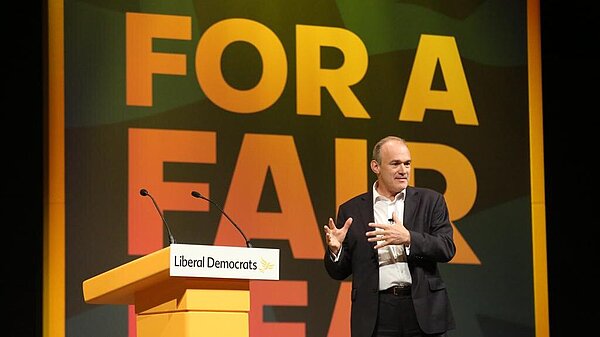Diversity Quotas
F4 - Constitutional amendment
Chair: Duncan Brack; Aide: Professor Belinda Brooks–Gordon; Hall Aide: Sam Barratt.
Submitted by: 40 members.
Mover: Zoe Hollowood.
Summation: Juliet Line.
Conference notes that:
- The Equality Act 2010 applies to political parties as private associations. Moreover, equality is a fundamental value of our party.
- Section 101 of the Act says a party must not discriminate in how its members are afforded access to a benefit, facility or service; this includes e.g. when conducting elections to party committees.
- Candidates win elections by gaining the most votes. Exceptionally, results can only be adjusted where this is lawful. Under Section 158 of the Act any ‘positive action’ – e.g. to change election results – must have an objective justification based on a protected characteristic, such as sex, race or disability. However, Article 2.5 of our Constitution does not meet this requirement, as it uses arbitrary terms that are not protected characteristics. ‘Self–identification’ is not recognised in law. Returning males into vacancies expressly reserved for females would be unlawful.
- Article 2.7 in our Constitution states that where a party rule appears to conflict with the Equality Act, the provisions of that Act shall prevail.
- The UK Supreme Court has recently concluded that the use of ‘man’, ‘woman’, and ‘sex’ under the Equality Act were ‘always intended’ to refer only to ‘biological sex’. It further stated that any other interpretation would cause the Act to be incoherent and impracticable to operate.
- The Equalities and Human Rights Commission (EHRC) has stated that the Equality Act, as clarified by the Supreme Court, has effect and is binding, and so organisations must, where necessary, amend policies, criteria and practices as appropriate and not wait for further guidance.
- In our party, women are underrepresented on key governance bodies. For example, the Federal Council (40 members) and English Council (162 members) have approximately twice as many men as women. Thus there is a statutory justification for a positive action of maintaining a quota for women on our internal committees. The 40 percent quota in Article 2.5 is applied to six counts in five committees and up to 23 candidates among 60 committee places for three–year terms.
Conference therefore agrees to delete Article 2.5 and replace with:
Whenever this Constitution provides for the election by party members to a Federal Committee, not less than 40% or, if 40% is not a whole number, the whole number nearest to but not exceeding 40% of those elected shall be men, and shall be women, respectively.
Applicability: Federal.
The existing text of the Federal constitution is as follows:
Article 2.5
Whenever this Constitution provides for the election by party members to a Federal Committee, not less than 40% or, if 40% is not a whole number, the whole number nearest to but not exceeding 40% of those elected shall self–identify as men or non– binary people, and self–identify as women or non–binary people respectively.
Mover: 5 minutes; all other speakers: 3 minutes. For eligibility and procedure for speaking in this debate, see pages 6-7 of the agenda. You can submit a speaker's card online here from Monday 15 September up to 08.30 Saturday 20 September or in person.
The deadline for amendments to this motion is 13.00 Monday 8 September; you can submit amendments online here, see pages 9–10 of the agenda for more information. Those selected for debate will be printed in Conference Extra and Saturday’s Conference Daily. The deadline for requests for separate votes is 09.00 Thursday 18 September; you can request separate votes here, see page 5 of the agenda for more information.
Constitutional amendments require a two-thirds majority to pass.


